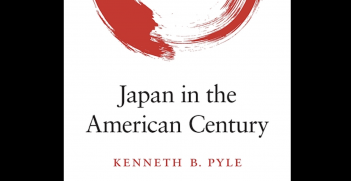Will scandal sink Abe?

A damaging scandal is dogging Shinzo Abe, but is it severe enough to cost him his job?
Over the last few months Japanese Prime Minister Shinzō Abe has been caught in a scandal over preferential treatment. The scandal involves allegations that Abe used his position as prime minister to influence approval of a veterinary school at an educational institution.
With growing negative coverage and the opposition on the attack, the scandal has already caused a sharp decline in his government’s approval ratings, but the key question is whether the scandal is enough to lead to Abe’s resignation? Or will he be able to weather it and continue to push his agenda?
The controversy involves allegations of preferential treatment and improper use of his position. In May 2017 it was alleged that Abe abused his prime ministerial role to influence the education ministry to approve the opening of a new veterinary medicine facility at the Kake Educational Institution, an institute run by his close friend.
The emergence of this scandal caused great embarrassment for Abe and his government as well as a sharp decline in public support. It culminated in Abe’s Liberal Democratic Party (LDP) suffering a heavy defeat in elections to the Tokyo prefectural assembly.
The impact is unlikely to go away any time soon, with a former top education ministry official testifying to a Diet committee on 10 July and reaffirming the allegations.
In late July Abe himself was questioned by the committee about his role, and his testimony to Diet looks likely to dictate the future of his prime ministership. To turn around the drop in approval ratings, his explanations needed to be able convincingly to address and refute the allegations against him. Any further deterioration in the polls would potentially make Abe’s position untenable.
However, at this stage, Abe’s testimony has, not surprisingly, failed to convince the opposition parties, and a recent survey has shown that a large majority of voters have not been convinced by his explanations. Whether this will be the catalyst for his downfall remains to be seen.
A new LDP leader?
Another factor helping to decide Abe’s fate is whether or not there is a viable successor. Abe has been the LDP’s most successful leader in recent memory with the party winning successive landslide victories under his leadership. Because of this, the LDP removed the two-term limit that had previously applied to the party leadership.
The party may be particularly hesitant to replace Abe because when Junichirō Koizumi, the LDP’s last successful leader, resigned in 2006 he was followed by weak and ineffective men who were unable to maintain the LDP’s standing with the public. It culminated with the LDP losing the 2009 general elections.
The LDP would presumably be concerned that if there is not an obvious person who could restore the LDP’s standing to pre-scandal levels, then history may repeat. If, on the other hand, there is a potential successor who is popular and untainted by controversy, the LDP may be more inclined to persuade Abe to stand aside in order to restore the LDP’s standing with the Japanese public.
At this stage it remains too early to say whether or not the questions over the Kake Educational Institution affair will lead to Abe’s resignation as prime minister, but if his testimony to the Diet continues to fail to convince the public and the LDP manage to find a suitable replacement in the wings, then it will be much likelier that the scandal will lead to Abe’s downfall.
Given the collapse in public support that it has caused, the scandal surrounding Abe and his relationship with the Kake Educational Institution is the biggest threat to his prime ministership since he was elected. Whether it will lead to his resignation, however, will be dependent on not only whether or not his testimony and explanation to the Diet is convincing but also on whether there is a credible replacement.
Jim Medew is an intern with the AIIA National Office. He completed a Master of Arts in international relations at Deakin University in 2015.
This article is published under a Creative Commons Licence and may be republished with attribution.





